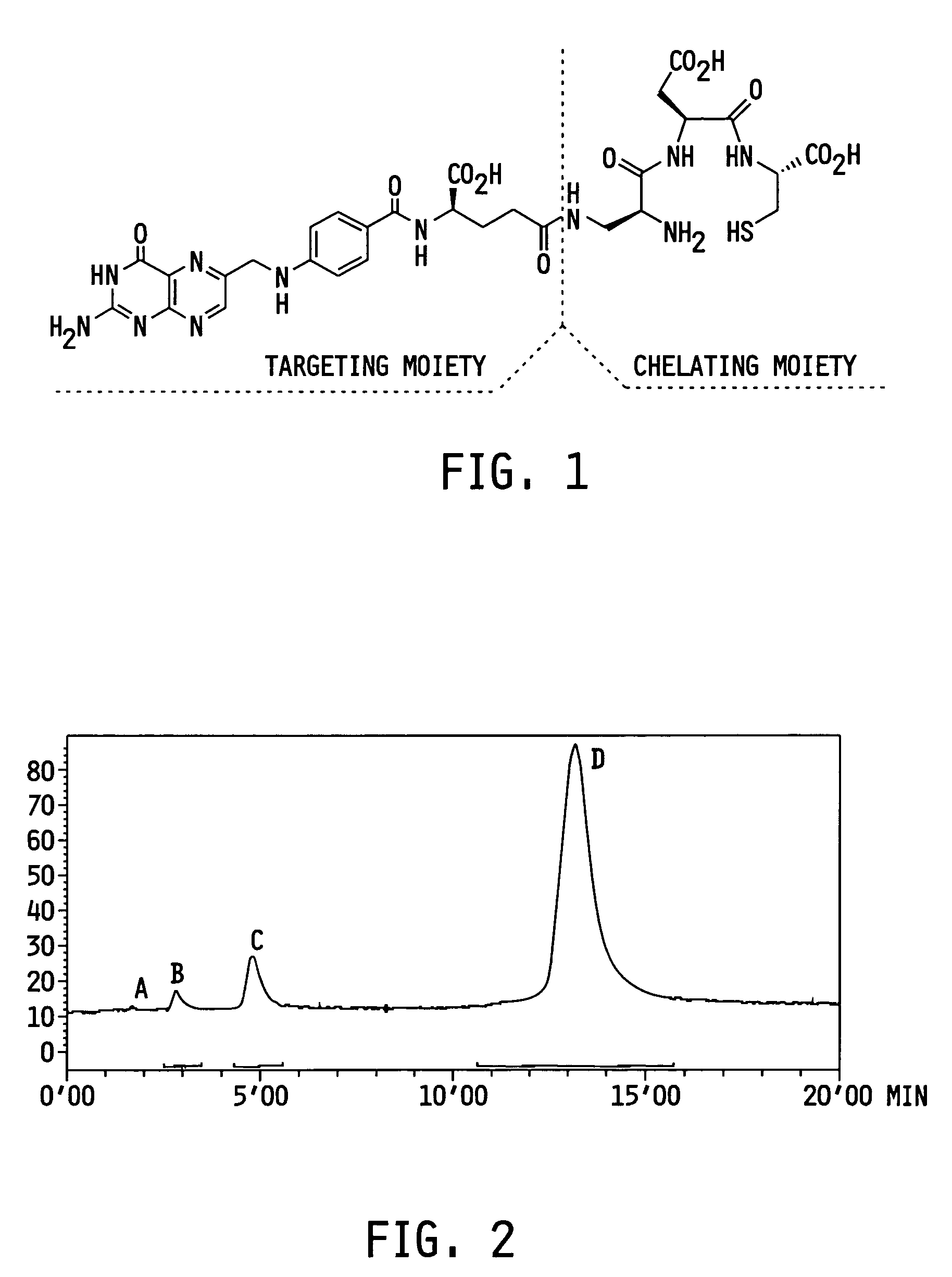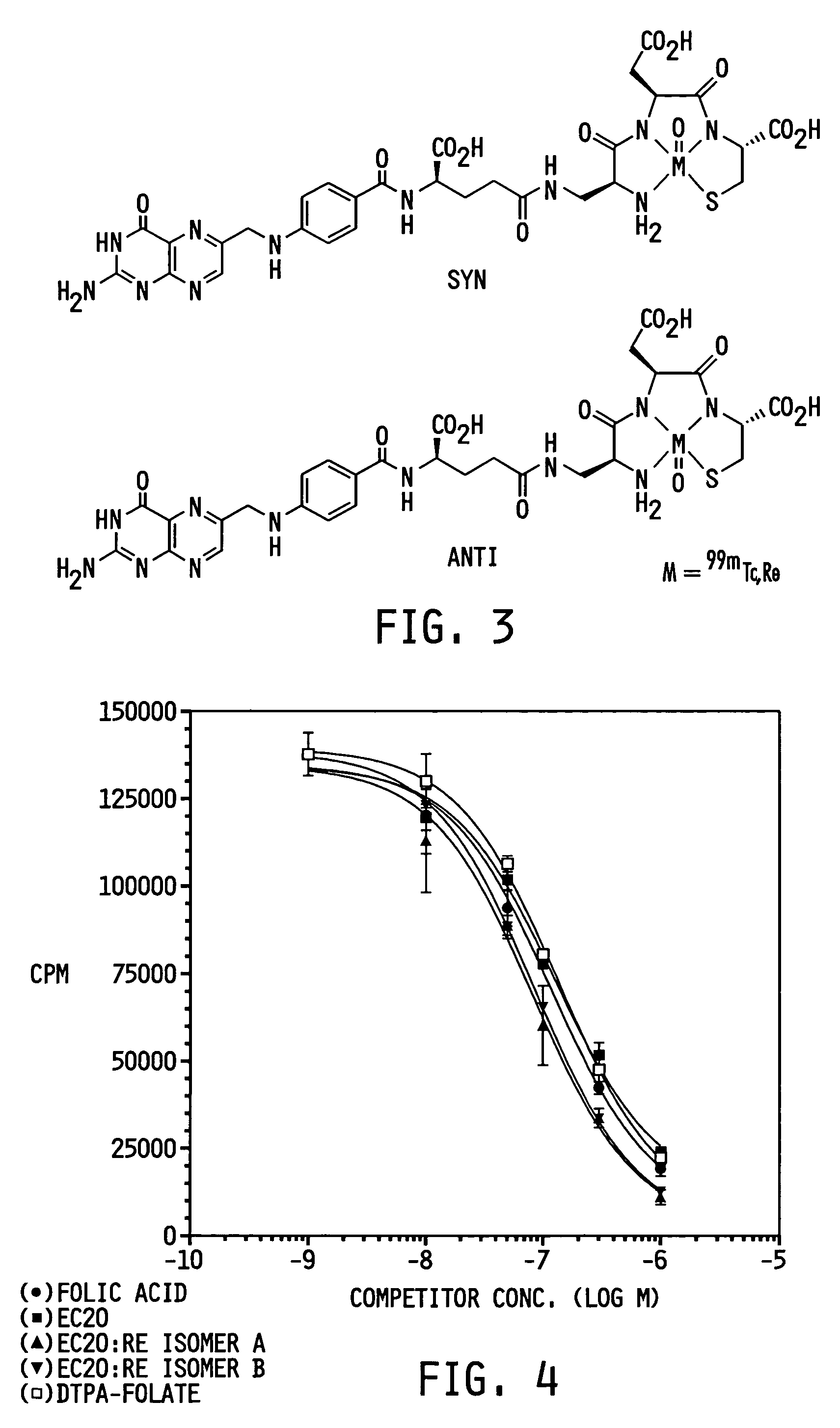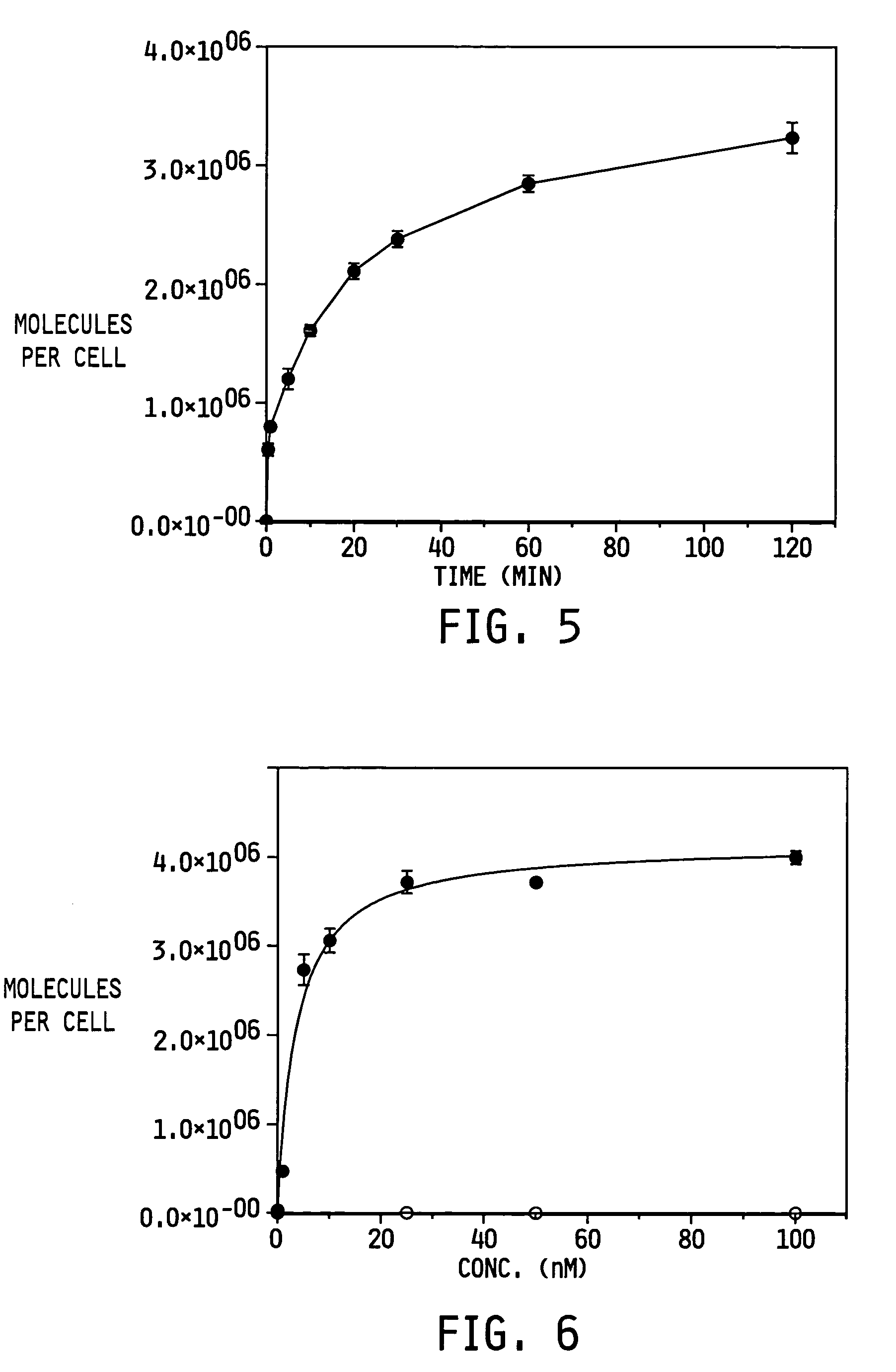Vitamin-targeted imaging agents
a technology of imaging agents and vitamins, applied in the field of compounds and methods for targeting imaging agents, can solve the problems of many limited techniques, many limited techniques, and the stoppage of preclinical development, and achieve the effects of reducing the cost of producing large amounts of 99mtc, and improving the quality of li
- Summary
- Abstract
- Description
- Claims
- Application Information
AI Technical Summary
Benefits of technology
Problems solved by technology
Method used
Image
Examples
example 1
Materials.
[0078]N10-trifluoroacetylpteroic acid was purchased from Eprova AG, Schaffhausen, Switzerland. Peptide synthesis reagents were purchased from NovaBiochem and Bachem. 99mTc Sodium Pertechnetate was supplied by Syncor. [ReO2(en)2]C1 was prepared according to Rouschias (Rouschias, G., Chem. Rev., 74: 531 (1974)). Cellulose plates and DEAE ion exchange plates were purchased from J.T. Baker.
example 2
Synthesis, Purification, and Analytical Characterization of EC20.
[0079]EC20 was prepared by a polymer-supported sequential approach using the Fmoc-strategy (see Scheme 1 below; Fmoc=9-fluorenylmethyloxycarbonyl; Boc=tert.butyloxycarbonyl; Dap=diaminopropionic acid; DMF=dimethylformamide; DIPEA=diisopropylethylamine). EC20 was synthesized on an acid-sensitive Wang resin loaded with Fmoc-L-Cys(Trt)-OH. Benzotriazole-1-yl-oxy-tris-pyrrolidino-phosphoniumhexafluorophosphate (PyBOP) was applied as the activating reagent to ensure efficient coupling using low equivalents of amino acids. Fmoc protecting groups were removed after every coupling step under standard conditions (20% piperidine in DMF). After the last assembly step the peptide was cleaved from the polymeric support by treatment with 92.5% trifluoroacetic acid containing 2.5% ethanedithiol, 2.5% triisopropylsilane and 2.5% deionized water. This reaction also resulted in simultaneous removal of the t-Bu, Boc and trityl protecting...
example 3
Preparation of the Non-Radioactive Reagent Vial and of 99mTc-EC20.
[0086]EC20 kits were used for preparation of the 99mTc-EC20 radioactive drug substance. Each kit contained a sterile, non-pyrogenic lyophilized mixture of 0.1 mg EC20, 80 mg sodium α-D-glucoheptonate, 80 mg tin (II) chloride dihydrate, and sufficient sodium hydroxide or hydrochloric acid to adjust the pH to 6.8±0.2 prior to lyophilization. The lyophilized powder was sealed in a 5 mL vial under an argon atmosphere. The kits were then stored frozen at −20° C. until use or expiration (current shelf life is >2 years). Importantly, the tin (II) chloride component is required to reduce the added 99mTc-pertechnetate, while the sodium α-D-glucoheptonate component is necessary to stabilize the newly reduced 99mTc prior to its final chelation to the EC20 compound.
[0087]99mTc-EC20 was prepared as follows (i.e., chelation of 99mTc to EC20). First, a boiling water bath containing a partially submerged lead vial shield was prepared...
PUM
| Property | Measurement | Unit |
|---|---|---|
| Frequency | aaaaa | aaaaa |
| Frequency | aaaaa | aaaaa |
| Frequency | aaaaa | aaaaa |
Abstract
Description
Claims
Application Information
 Login to View More
Login to View More - R&D
- Intellectual Property
- Life Sciences
- Materials
- Tech Scout
- Unparalleled Data Quality
- Higher Quality Content
- 60% Fewer Hallucinations
Browse by: Latest US Patents, China's latest patents, Technical Efficacy Thesaurus, Application Domain, Technology Topic, Popular Technical Reports.
© 2025 PatSnap. All rights reserved.Legal|Privacy policy|Modern Slavery Act Transparency Statement|Sitemap|About US| Contact US: help@patsnap.com



